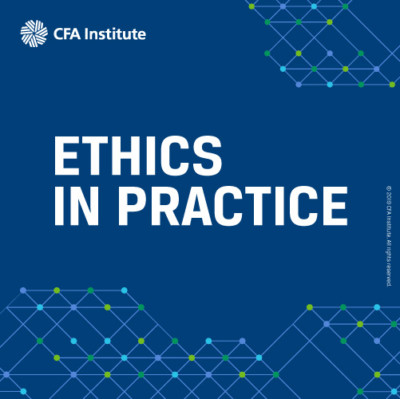Ethics in Practice: Commodity Trading—Futures Contracts. Case and Analysis–Week of 4 March
How did you do evaluating this week’s (4 March) case? Check out the analysis below.
Case
Antron is a commodities trader for a regional bank. He often places customer orders for precious metal futures contracts. Then shortly after placing a customer order, he will place a significantly larger order on the other side of the trade for his personal account. So for example, when a customer order is a “sell” order, Antron places a much larger “buy” order from his personal account. Typically, Antron’s orders for his personal account are placed slightly lower than best price, reducing the likelihood of his order being filled immediately. As soon as the customer order is executed, Antron cancels his personal trade order. Antron’s actions are
- unacceptable.
- acceptable because his clients’ trades are always executed prior to his personal trades.
- acceptable if he discloses that he is engaging in a trading strategy for his personal account that is opposite that of his client account.
- acceptable because he is acting in the best interests of his clients.
- none of the above.
Analysis
Antron is engaged in a market manipulation scheme in violation of CFA Institute Standard II(B): Market Manipulation, which prohibits CFA Institute members from engaging in practices that distort prices with the intent to mislead the market. By trading in this manner, Antron is engaging in the practice of “spoofing”: His personal orders, which he routinely cancels, are fake or spoof orders entered with the intent to send false signals to market participants. So for example, by placing spoof orders to buy, Antron sends market participants a false signal of greater demand, creating the impression that the price would likely rise and tricking market participants into executing against his genuine customers’ orders to sell. This causes his customers’ genuine sell orders to be filled sooner, at a better price, or in larger quantities than might otherwise occur. (The risk that the spoof orders could mislead other market participants into believing there was genuine interest in purchasing or selling the specified number of contracts represented by Antron’s spoof orders was so obvious that Antron must have been aware of it.)
Although Antron’s spoofing practice is boosting returns for his clients’ trades, he is doing so at the expense of the integrity of the market. The order of trading between client orders and those for his personal account is irrelevant. In fact, his personal trades are never executed—an integral part of the spoofing scheme. And because Antron is not following a legitimate trading strategy, disclosure of his strategy to his clients does not legitimize or permit his market manipulation scheme. Choice A is the best answer.
This case is based on a US Commodities Futures Trading Commission enforcement action from February 2019.
Let us know what you think of Ethics in Practice by taking this short survey.
Have an idea for a case for us to feature? Send it to us at [email protected].
More About the Ethics in Practice Series
Just as you need to practice to become proficient at playing a musical instrument, public speaking, or playing a sport, practicing assessing and analyzing situations and making ethical decisions develops your ethical decision-making skills. The Ethics in Practice series gives you an opportunity to “exercise” your ethical decision-making skills. Each week, we post a short vignette, drawn from real-world circumstances, regulatory cases, and CFA Institute Professional Conduct investigations, along with possible responses/actions. We then encourage you to assess the case using the CFA Institute Ethical Decision-Making Framework and through the lens of the CFA Institute Code of Ethics and Standards of Professional Conduct. Then join the conversation and let us know which of the choices you believe is the right one and explain why. Later in the week, we will post an analysis of the case and you can see how your response compares.
Image Credit: ©CFA Institute


A) Unacceptable
Because he is trying to mislead by displaying huge buy quantity which will give a false sense of bullish view on the asset
I choose A.
I consider A option to be correct as for a professional it’s not just his clients benefit but the market integrity should also be important. Hence this course of action is unacceptable!